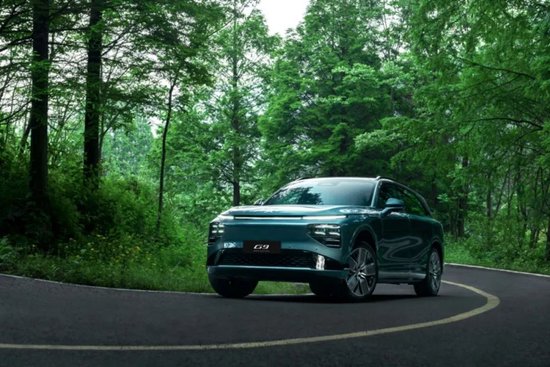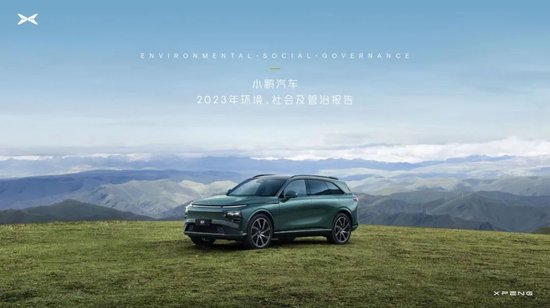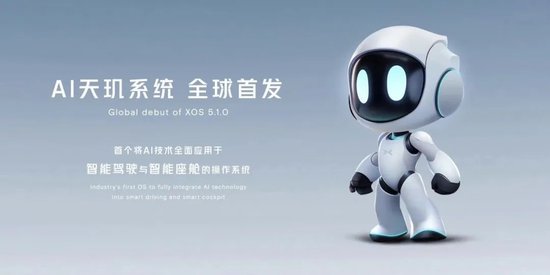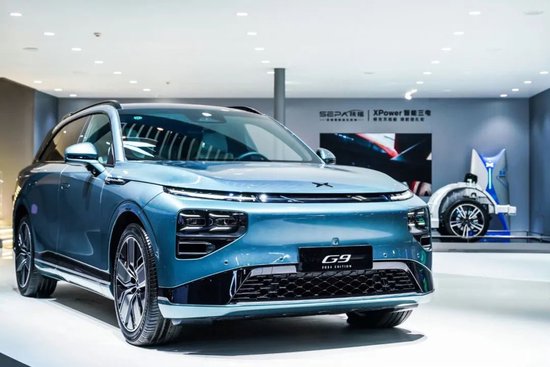36 carbon.
When car companies start rolling towards ESG, Xiaopeng Motors has taken the lead. Almost every year, ESG is crowned as the “first year”. Today, it is no longer just a fashionable term on paper, but has truly entered the “deep water area” and faces more practical tests. ESG disclosure is becoming a compliance must-answer for more companies, and ESG ratings are gradually becoming an important scoring point for winning overseas orders. Focusing on new energy vehicles, ESG has also sparked a transformation wave in the automotive industry. Not every new energy vehicle company can be considered an ESG model student. In the journey of car companies seeking ESG, some “model students” have begun to emerge, Xiaopeng Motors being one of the representatives. On April 17th, Xiaopeng Motors released the “2023 Environmental, Social and Governance Report”. In the importance matrix, Xiaopeng listed product quality and safety, business ethics, customer service and satisfaction as core issues, and with excellent performance in each area, received an impressive “ESG report card”.
In 2023, Morgan Stanley, an international authoritative index agency, upgraded XPeng Motors’ ESG rating from “AA” to the highest “AAA” globally. This achievement surpasses traditional automakers and new energy vehicle companies like Tesla. MSCI has given high evaluations in key indicators such as clean technology development prospects, product carbon footprint, and corporate governance, exceeding industry averages. Faced with the severe challenges brought by global climate change, the ESG transformation wave is sweeping across various industries. While many automakers are joining the race for ESG transformation, XPeng Motors is already leading the industry.
When cars become “smarter,” how does intelligent driving technology empower ESG? “At the Beijing Auto Show this year, Xiaopeng Motors Chairman and CEO He Xiaopeng said, “The last decade was the decade of new energy, and the next decade will be the decade of intelligence.” He has always believed that the core turning point of electric vehicles lies in intelligence, not design and cost. This is also the reason why Xiaopeng Motors firmly bet on intelligent technology ten years ago. This forward-looking decision has now been validated by time. “AI big models accelerate boarding” has become the key word at this year’s Beijing Auto Show, opening the second half of the competition for new energy vehicles.
But there are still doubts in the market: smart driving technology vs human judgment, who is more reliable? Smart driving technology is essentially a complex system engineering driven by AI technology, providing accurate perception, planning, and control support during driving. With high-precision sensors and advanced algorithms, smart driving technology can perceive and analyze surrounding environment information comprehensively, providing precise decision-making basis for vehicles. In contrast, manual driving largely relies on the driver’s visual and auditory perception, which may be affected by factors such as fatigue, emotions, and distraction, leading to perception and judgment deviations. Linked to ESG issues, the automotive industry is a typical industry with strong products and services, where product quality and safety directly affect consumer safety and experience, making it a top priority in the ESG work of car companies. In the latest ESG report released by XPeng Motors, “product quality and safety” are listed as the most core issue in the company’s ESG importance matrix. XPeng Motors believes that behind more intelligent features, high-quality safety products are the key support for the highest value of advanced smart driving, helping to reduce accident rates. Data shows that by 2023, XPeng car owners in intelligent driving mode have an average accident rate of about 1/10 of manual driving mode per million kilometers. He Xiaopeng also stated that in the future, with the improvement of smart driving capabilities, the era of unmanned driving with the coordination of vehicles, roads, and cloud is coming, and this figure is expected to drop to between 1% and 1‰. From the top-down management system level, XPeng Motors has incorporated quality and safety into its governance structure. The company has established a corporate-level quality and safety management system, as well as a product safety management committee, a product safety management office, and an internal product safety working group, forming a joint working mechanism. When it comes to specific product dimensions, smart driving and smart cockpit are seen as the focus of XPeng’s tech R&D, also the main area of company’s R&D work. According to XPeng’s ESG report, the company’s R&D investment has been growing continuously for nearly four years. By 2023, XPeng’s product and technology R&D investment has exceeded 5.2 billion yuan, with R&D personnel accounting for 40% of the company’s employees. This number is still increasing, and this year XPeng’s technology R&D investment is expected to exceed 6 billion yuan. Smart technology is still rapidly iterating and reshaping our lives, work, and entertainment. But from the perspective of social public value, smart technology should not be the exclusive privilege of a few high-end consumer groups, but should be widely accessible to every corner of society. Promoting technological inclusiveness through cost optimization is also seen as an important future direction for XPeng. The company is committed to lowering the threshold for intelligent products, allowing the benefits of technology to truly reach everyone and reduce the digital divide between social classes. At the China Electric Vehicle Hundred People Forum in March this year, He Xiaopeng announced for the first time that XPeng will soon launch a new brand, officially entering the global car market at the 150,000 yuan (20740$) level. The company is dedicated to creating the “first AI smart driving car for young people,” enabling more consumers to enjoy the convenience brought by smart driving technology. Not only that, XPeng is also actively participating in various public welfare activities and social responsibility projects. As early as 2021, the company established the XPeng Foundation, the first corporate foundation in China’s new energy vehicle industry focusing on ecological environmental issues. Through activities such as new energy vehicle popularization, advocating for low-carbon travel, and promoting biodiversity protection, more people are able to learn about ecological environmental knowledge. Behind the impressive ESG report card is XPeng’s years of deep technological accumulation and social responsibility. This has made XPeng’s smart technology accumulation and ESG become two complementary fields. The former promotes consumer empowerment and industry innovation through smart technology, while the latter creates more responsible long-term value for stakeholders, empowering product safety, technological innovation, and social responsibility.
First step to go global, focus on ESG. China’s new energy vehicles are gaining ground in overseas markets. From January to April 2024, China exported 421,000 new energy vehicles, up 20.8% year-on-year. Chinese automakers are expanding their overseas strategy, shifting from just exporting products to also exporting technology and expanding the industrial chain. Xpeng Motors began its overseas layout in 2020 and is now entering a new phase in 2024. In a New Year’s open letter in 2024, He Xiaopeng defined this year as the “first year of Xpeng’s internationalization V2.0,” aiming to create a global path in terms of products, intelligent driving, and brand. This determination is evident in the expanding overseas presence. In May 2024, Xpeng Motors announced its entry into the Australian and French markets, accelerating the implementation of its internationalization 2.0 strategy.
To eat more cake in the international market, ESG work is becoming a key factor. Whether ESG is done well or not directly affects the ability to win orders. Different markets have different requirements for this “ticket.” Faced with policy standards in different countries and regions, car companies need to make corresponding adjustments to their response strategies. For example, the EU’s standards in the ESG field have always been a policy benchmark for the industry. The European Council has passed directives such as the “Corporate Sustainability Reporting Directive,” the “New Battery Act,” and the EU Carbon Border Adjustment Mechanism in the past two years, requiring companies to disclose sustainable information from different perspectives. For example, the CBAM regulation assesses the implicit carbon emissions of EU-imported products, and export companies may face additional tariff requirements. This regulation directly bypasses whole vehicle products and focuses on fasteners in automotive aftermarket parts, such as nuts. The head of ESG at Xiaopeng Motors stated that the New Battery Act not only requires disclosure of the full life cycle product carbon footprint of automotive batteries, but also requires the provision of battery passports, disclosure of detailed information, and the proposal of carbon emission limits and due diligence requirements. This means that ESG requirements have been refined to every capillary in the industrial chain. From the procurement of raw materials and chemicals to precision components and vehicle assembly, the supply chain behind a vehicle is long and complex. Building a more transparent, responsible, and sustainable supply chain system is a daunting task. For example, although electric vehicles naturally have low carbon attributes, reducing carbon emissions is still a challenge when traced back to the stages of raw material extraction, processing, or the recycling process after battery disposal. Starting in 2022, XPeng Motors has established a company carbon emission calculation system and set up a carbon footprint assessment system for all production vehicle models, internally calculating the enterprise’s carbon emissions and each vehicle model’s lifecycle carbon emissions. XPeng Motors has also implemented sustainable management throughout the entire lifecycle with suppliers, including supplier admission, auditing, risk management, and ESG evaluations. Environmental management policies cover the entire business process, from production operations, waste management, environmental impact management, to logistics distribution, and driving suppliers and contractors to reduce carbon emissions. This is closely integrated with XPeng Motors’ evolving ESG governance structure. In line with the company’s ESG strategic planning and changes in domestic and international ESG markets and policy environments, XPeng Motors has established parallel “E/S/G Communication Matrix Teams” and an “ESG Execution Task Force” to assist in managing various ESG-related affairs, further clarifying responsibilities for each sector and improving the efficiency of handling ESG matters. Additionally, the company has introduced module experts in areas such as battery technology and overseas policy regulations to enhance the committee’s flexibility in policy response. At a holistic level, XPeng Motors has developed longer-term ESG strategic planning based on global ESG development trends and future policy directions, conducting thorough operational evaluations when implementing strategies to ensure their sustainability and economic viability. Facing systemic challenges in sustainable transformation, XPeng Motors empowers more suppliers with experience and technology through assistance programs and regular supplier experience sharing sessions to enhance the overall quality of the supply chain. In 2023, Xiaopeng was selected for the National Ministry of Industry and Information Technology’s green manufacturing list and awarded the title of “National Green Supply Chain Management Enterprise.”
When companies go global for growth, they face additional challenges due to unpredictable factors and trade restrictions in the current global trade environment. XPeng Motors stated that they will closely monitor regulatory changes, engage in deep communication with relevant national departments, industry peers, and authoritative professional institutions, actively respond to green rules beneficial to international social development, and speak out for Chinese auto companies against rules with obvious green barriers. The rapid rise of new energy vehicle companies in China has only taken place in the past decade, while ESG topics have only truly entered the public eye in the past three to five years. The combination of auto companies and ESG is still an area that requires further exploration, with every participant navigating through unknown waters. However, XPeng Motors has already taken the lead, making many industry-leading or even industry-changing moves, and will continue to do so, exploring more possibilities on a path of long-termism.










